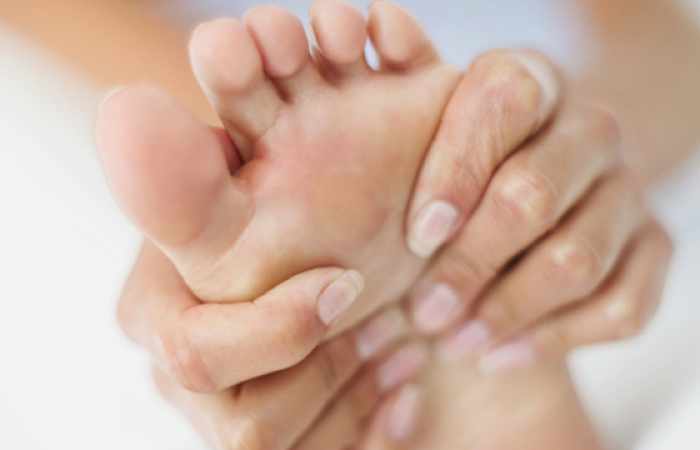Nerves carry electrical signals like water through a hose, says Steven Vernino, a professor of neurology at the University of Texas Southwestern Medical Centre.
The signals are transmitted to the brain from a specific part of the body where they are recognised and a message is sent back down.
For example, if you touch a hot stove, the nerves in your hand will fire a signal to the brain where it's interpreted as pain, causing you to pull your hand back.
The same way that water gets stuck when you twist a hose, motor signals in your nerves can't move if your legs are crossed or your wrist is bent. (In your wrist, a constant numbness or weakness is known as carpal tunnel syndrome.)
"One common nerve in the leg that is compressed is the fibular nerve," Traub wrote in an email, "which travels around the side of the knee and often gets pinched when people sit with their legs crossed for a prolonged period."
It's a common misconception that the numb sensation is caused by a lack of blood supply, says Traub. It is possible to cut off blood flow to the limb, but that's rare, adds Vernino.
The tingling or 'pins and needles' feeling that people experience happens as the nerves are regaining function.
Your foot or limbs are 'waking up'. In medical terms, this is known as paresthesia. The discomfort, which is sometimes painful, generally causes you to change your position.
Most people can move around and relieve the pressure on their nerves.
But if "someone is not able to move or sedated they can have permanent nerve injury from this type of compression," says Traub.
/Science Alert/
More about: #bodyreaction

























-1745485667.jpg&h=190&w=280&zc=1&q=100)






















